Browse in the Library:
| Artist or Composer / Score name | Cover | List of Contents |
|---|---|---|
| Waltz – Noce i Dnie OST (Nights and days) | ||
| Waltz For Debby Bill Evans (Musescore File).mscz | ||
| Waltz For Debby – Bill Evans (Complete) (Musescore File).mscz | ||
| Waltz For Debby – Bill Evans (Musescore File).mscz | ||
| Waltz From The Balet ‘coppelia’ (Musescore File).mscz | ||
| Waltz In A Minor F. Chopin (Musescore File).mscz | ||
| Waltz In E Minor Op. 39 No. 4 – Johannes Brahms (Musescore File).mscz | ||
| Ward-Jackson’s Gymnastics For The Fingers And Wrist – based On Anatomical Principles (By Edwin Ward-Jackson) 1874 |
 |
|
| Watermark (Musescore File).mscz | ||
| Watermelon Man (Musescore File).mscz | ||
| Waters of Irrawaddy (Hans Zimmer) from the movie Beyond Rangoon | ||
| Wave – Vou Te Contar Jobim (Musescore File).mscz | ||
| Wayne Shorter – Ana Maria |
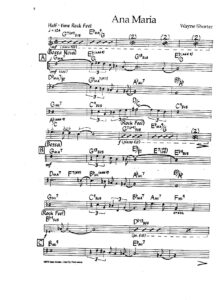 |
|
| Wayne Shorter Artist Transcriptions The New Best of |
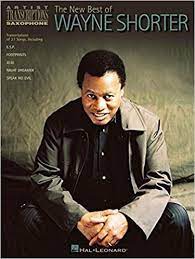 |
Wayne Shorter Artist Transcriptions The New Best of |
| Wayward Sisters – Nocturnal Animals OST (Abel Korzeniowski) | ||
| We are the champions (Queen) | ||
| We Are The World Songbook |
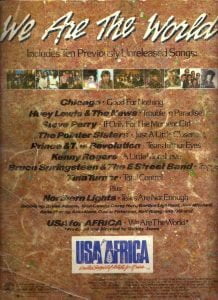 |
we are the world |
| We Shall Overcome Essays on a Great American Song (Book) by Victor B.Bobetsky |
 |
|
| We Wish You A Merry Christmas | ||
| We Wish You A Merry Christmas – Anonymous (Guitar arr. sheet music with TABs) | We Wish You A Merry Christmas – Anonymous (Guitar arr. sheet music with TABs) | |
| We Wish You A Merry Christmas – Guitar TABlature |
 |
|
| We Wish You A Merry Christmas (piano solo sheet music) |
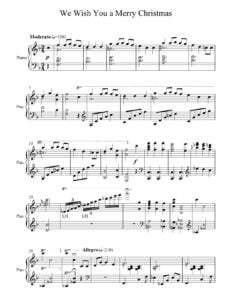 |
|
| We Wish You A Merry Christmas Trad. English Christmas carol |
 |
|
| We Wish You A Merry Christmas Trad. English Christmas carol.mscz | ||
| Weather Report – A Remark You Made (Guitar TABS) | Weather Report – A Remark You Made (Guitar TABS) | |
| Weather Report – The best of Weather Report (Full score) |
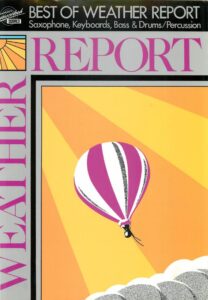 |
Weather Report – The best of Weather Report (Full score) |
| Weather Report Best Of Weather Report Band Score Book |
 |
Best Of Weather Report Us Book |
| Weber – Der Freischütz (Ouvertüre) Piano Solo arr |
 |
|
| Weber – Der Freischütz (Ouvertüre) Piano Solo arr.mscz | ||
| Weber – Der Freischutz Overture piano solo arr. |
 |
|
| Weber op 65 Invitation to the Dance (Invitation to the Waltz) | ||
| Weber’s Last Thought – C.M. von Weber |
 |
|
| Wedding Collection for Piano Solo |
 |
Wedding Collection for Piano Solo |
| Wednesday Morning 3 A M – Simon & Garfunkel (Musescore File).mscz | ||
| Weight Of The World – Nier Automata Piano Collections (Musescore File).mscz | ||
| Weissenberg En Avril A Paris (April In Paris) Charles Trenet |
 |
|
| Well Tempered Praise – Mark Hayes piano |
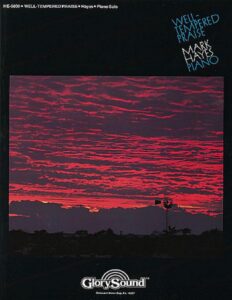 |
Well Tempered Praise – Mark Hayes piano |
| Well Tempered Praise II by Mark Hayes |
 |
Well Tempered Praise II by Mark Hayes |
| Well Tempered Praise III – Mark Hayes piano |
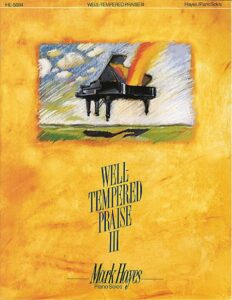 |
Well Tempered Praise III – Mark Hayes piano |
| Well Tempered Praise Vol 4 Gospel Classics by Mark Hayes |
 |
Well Tempered Praise Vol 4 Gospel Classics by Mark Hayes |
| Well-Known Piano Solos – How To Play Them (By Charles W Wilkinson) (1915) |
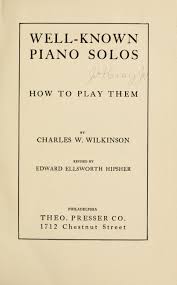 |
|
| Wes Montgomery Wine And Roses By Henry Mancini Solo Guitar |
 |
|
| Wes Montgomery – Unit 7 Solo Transcription | Wes Montgomery – Unit 7 Solo Transcription | |
| Wes Montgomery – Artist Transcriptions for guitar by fred Sokolow |
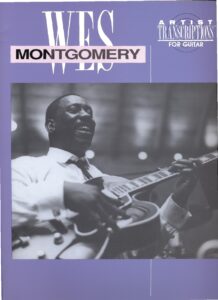 |
Wes Montgomery – Artist Transcriptions for guitar by fred Sokolow |
| Wes Montgomery – Au Privave transcription |
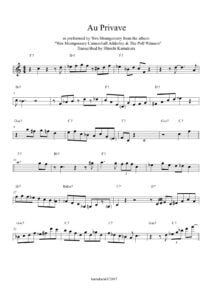 |
|
| Wes Montgomery – Days of wine and roses transcription |
 |
|
| Wes Montgomery – Take The A Train transcription |
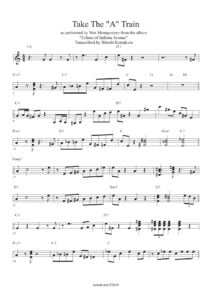 |
|
| Wes Montgomery Essential Jazz Lines (Mel Bay) |
 |
Wes Montgomery Essential Jazz Lines (Mel Bay) |
| Wes Montgomery Jazz Guitar Artistry arr. by Zafar Soood with TABs |
 |
Wes Montgomery Jazz Guitar Artistry arr. by Zafar Soood |
| Wes Montgomery Jazz No Blues Guitar |
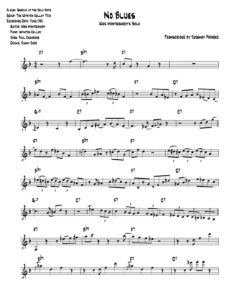 |
|
| Wes Montgomery The Early Years (Mel Bay) Jazz Guitar Solos Tablature |
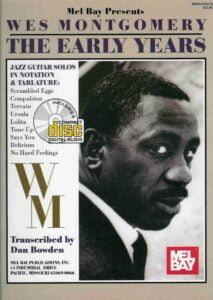 |
Wes Montgomery The Early Years (Mel Bay) Jazz Guitar Solos Tablature |
| Wes Montgomery The End Of A Love Affair Guitar Tabs |
 |
|
| West Side Story – Somewhere (Voice and Piano) Leonard Bernstein | West Side Story – Somewhere | |
| West Side Story (The Musical) Vocal Score Arthur Laurents, Leonard Bernstein, Stephen Sondheim |
 |
West Side Story Vocal Score – Leonard Bernstein |
| Westlife – Cant Lose What You Never Had | ||
| Westlife – Flying Without Wings | ||
| Westlife – If I Let You Go | ||
| Westlife – Mandy | ||
| Westlife – You Raise Me Up Guitar arr. with TABs | Westlife – You Raise Me Up Guitar arr. with TABs | |
| Westlife Unbreakable Greatest Hits |
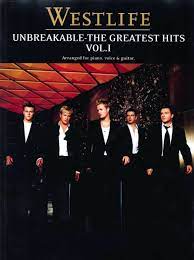 |
 |
| Wet Wet Wet – Love Is All Around | ||
| Wexford Carol (Musescore File).mscz | ||
| Wham , George Michael And Me By Andrew Ridgeley (Book) |
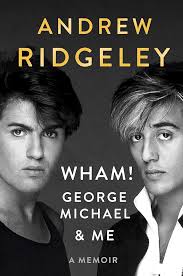 |
|
| Wham Make It Big Piano Vocal Guitar Chords |
 |
Wham Make It Big Piano Vocal Guitar Chords |
| What a Wonderful World – Thiele & Weiss |
 |
|
| What a wonderful world – Louis Armstrong.mscz | ||
| What A Wonderful World (Lead Sheet With Lyrics ) Musescore File.mscz | ||
| What a Wonderful World (lead sheet) – Thiele & Weiss | What a Wonderful World (lead sheet) – Thiele & Weiss | |
| What A Wonderful World (Musescore File).mscz | ||
| What a wonderfull World (Jazz Standard) Guitar Tablature TABs | What a wonderfull World (Jazz Standard) Guitar Tablature TABs | |
| What A Wonderlful World (Lead Sheet) (Musescore File).mscz | ||
| What You’re Made Of – Même Si (Lucie Silvas – Grégory Lemarchal | ||
| What’s That Sound An Introduction To Rock And Its History By John Covach And Andrew Flory (Book) |
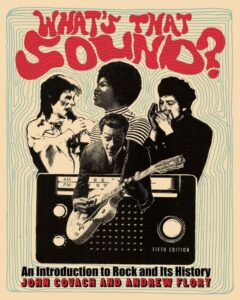 |
|
| When A Man Loves A Woman Calvin Lewis & Andrew Wright |
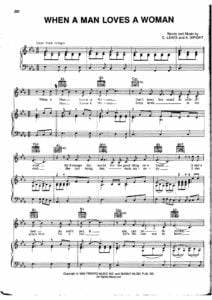 |
|
| When Almonds Blossomed – Giya Kancheli | When Almonds Blossomed – Giya Kancheli-1 | |
| When Almonds Blossomed (Musescore File).mscz | ||
| When I Fall In Love – Victor Young (Bill Evans Ver.) (Musescore File).mscz | ||
| When I fall in love Bill Evans version | When I fall in love Bill Evans version | |
| When I’m Sixty-Four (Beatles) | ||
| When Lights Are Low (Benny Carter) As Played By Miles Davis (Musescore File).mscz | ||
| When The Saints Go Marchin In – Gospel Traditional Folk song (Piano solo with Lyrics) | When The Saints Go Marchin In – Gospel Traditional Folk song (Piano solo with Lyrics) SAMPLE | |
| When The Saints Go Marching In – Fun piano arrangement | When The Saints Go Marching In – Fun piano arrangement | |
| When you told me you loved me (Jessica Simpson) | ||
| When You Wish Upon A Star (Musescore File).mscz | ||
| When You Wish Upon A Star (From The Film Pinocchio) Easy Piano Solo Arr. Sheet Music (Musescore File).mscz | ||
| When You Wish Upon A Star (Leigh Harline and Ned Washington) from Pinocchio Jazz Piano Solo arr. sheet music | When You Wish Upon A Star (Leigh Harline and Ned Washington) from Pinocchio Jazz Piano Solo arr. sheet music | |
| When You Wish Upon A Star (Solo Piano Arr ) David Dinh |
 |
|
| When You’re Gone (Avril Lavigne) | ||
| When You’re Smilling (Musescore File).mscz | ||
| Where have all the-flowers gone (guitar & voice) | Where-have-all-the-flowers-gone (guitar & voice) | |
| While your lips are still red (Nightwish) | ||
| Whistling away the dark (Darling Lili OST) Henry Mancini | ||
| White Album 2 Ending 3 Sayonara No Koto |
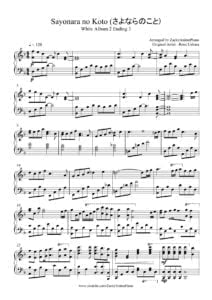 |
|
| White Christmas -Irving Berlin – Piano sheet music |
 |
|
| White Christmas Irving Berlin (Musescore File).mscz | ||
| White Christmas Medley (Liberace) | ||
| White skin like the moon (Jane Eyre 2011 OST) Dario Marianelli | ||
| Whitesnake – Here I Go Again |
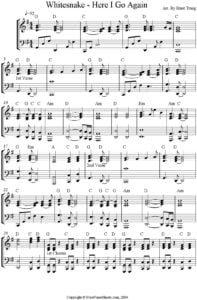 |
|
| Whitesnake Guitar Collection with TABs |
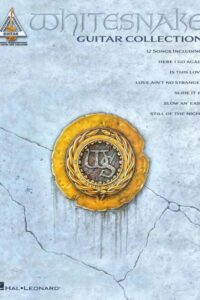 |
Whitesnake Guitar Collection with TABs |
| Whitesnake Is This Love Piano Vocal Guitar Chords | Whitesnake Is This Love Piano Vocal Guitar Chords | |
| Whitney Houston – Jesus Loves Me Sheet Music |
 |
|
| Whitney Houston The Best Of |
 |
Whitney Houston, The Best Of |
| Whitney Houston – I Will Always Love You | ||
| Whitney Houston – It’s Easy To Play Whitney Houston |
 |
Whitney Houston – It’s Easy To Play Whitney Houston |
| Whitney Houston – Saving All My Love For You | ||
| Whitney Houston – The Greatest Hits |
 |
Whitney – The Greatest Hits |
| Whitney Houston – The Greatest Love Of All | ||
| Whitney Houston I will always love you | Whitney Houston – I Will Always Love You | |
| Whitney Houston My Love Is Your Love |
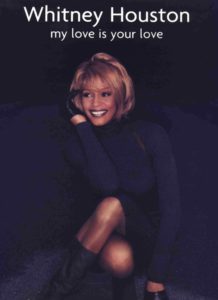 |
Whitney Houston My Love Is Your Love |
| Who wants to live forever (Queen) | ||
| Whole New World Sheet Music, A – Alan Menken |
 |
|
| Why Jazz? A Concise Guide – Kevin Whitehead (book) |
 |
|
| Wicked The Musical Sheet Music Full song Book Music and lyrics by Stephen Schwartz |
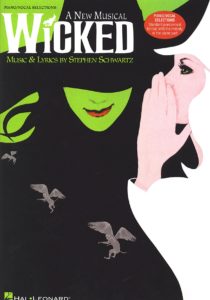 |
Wicked the musical contents — Wicked The Musical Sheet Music Full Book |
| Wieck – Piano Studies | ||
| Wiklund Adolf Fran Mitt Fonster (From my Window) Piano Solo |
 |
|
| Wild – Fantasy On Gershwin’s Porgy And Bess | Wild Fantasy On Gershwin’s Porgy And Bess | |
| Wild Gershwin Seven Virtuoso Etudes | Wild Gershwin Seven Virtuoso Etudes | |
| Wild, Earl – Gershwin Étude No. 4 based on Embraceable You Piano | Wild, Earl – Gershwin Etude No. 4 based on Embraceable You Piano | |
| Wilde Theme (Debbie Wiseman) | ||
| Wilhelm Kempff Musik Des Barock Und Rokoko – Nr. 13 Menuett G-Moll G.F. Händel (Musescore File).mscz |
Jazz: Keith Jarrett – The Art of Improvisation. Exclusive Interviews with Keith Jarrett, Gary Peacock and Jack Dejohnette.
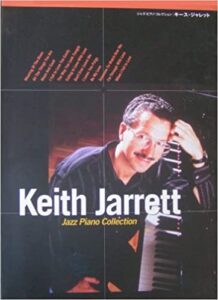
Keith Jarrett’s sheet music transcriptions are available from our Library.
Keith Jarrett: The Art of Improvisation
While he can often engender all manner of contention and argument, it’s unquestionable that Keith Jarrett is one of the most significant pianists to emerge in the second half of the 20th Century.
An artist who has done it all — performed his own sometimes lyrical, sometimes free-spirited compositions with two groundbreaking quartets in the ’70s; taken solo improvisation to a whole new level with a series of important recordings, including the classics Facing You and The Köln Concert.
Contributed a fresh spontaneity to the Great American Songbook with his Standards Trio; tackled the challenging classical repertoires of Bach, Mozart and Shostakovich and composed his own classical works; and played in landmark groups including Charles Lloyd in the ’60s and Miles Davis in the ’70s — Jarrett is also more than a little enigmatic.
Fastidious, perfectionist and, some might argue, highly controlled in his life, Jarrett paradoxically defines the concept of pure abandon in his playing.
With a life’s work that, classical repertoire aside, has always been about spontaneous creation, Jarrett is in an especially capable position to shed light on the true meaning of improvisation.
And so, British producer/director Mike Dibb, responsible for ’02’s The Miles Davis Story, has fashioned a new documentary which, while never explicitly defining what that elusive meaning is, nevertheless manages — after 85 minutes and a series of remarkably erudite interviews with Jarrett and those who have been close to him over the past 30 years — to create a vivid impression that is both inspirational to aspiring musicians and uniquely clarifying to others who want to understand the process of how musicians create something out of nothing.
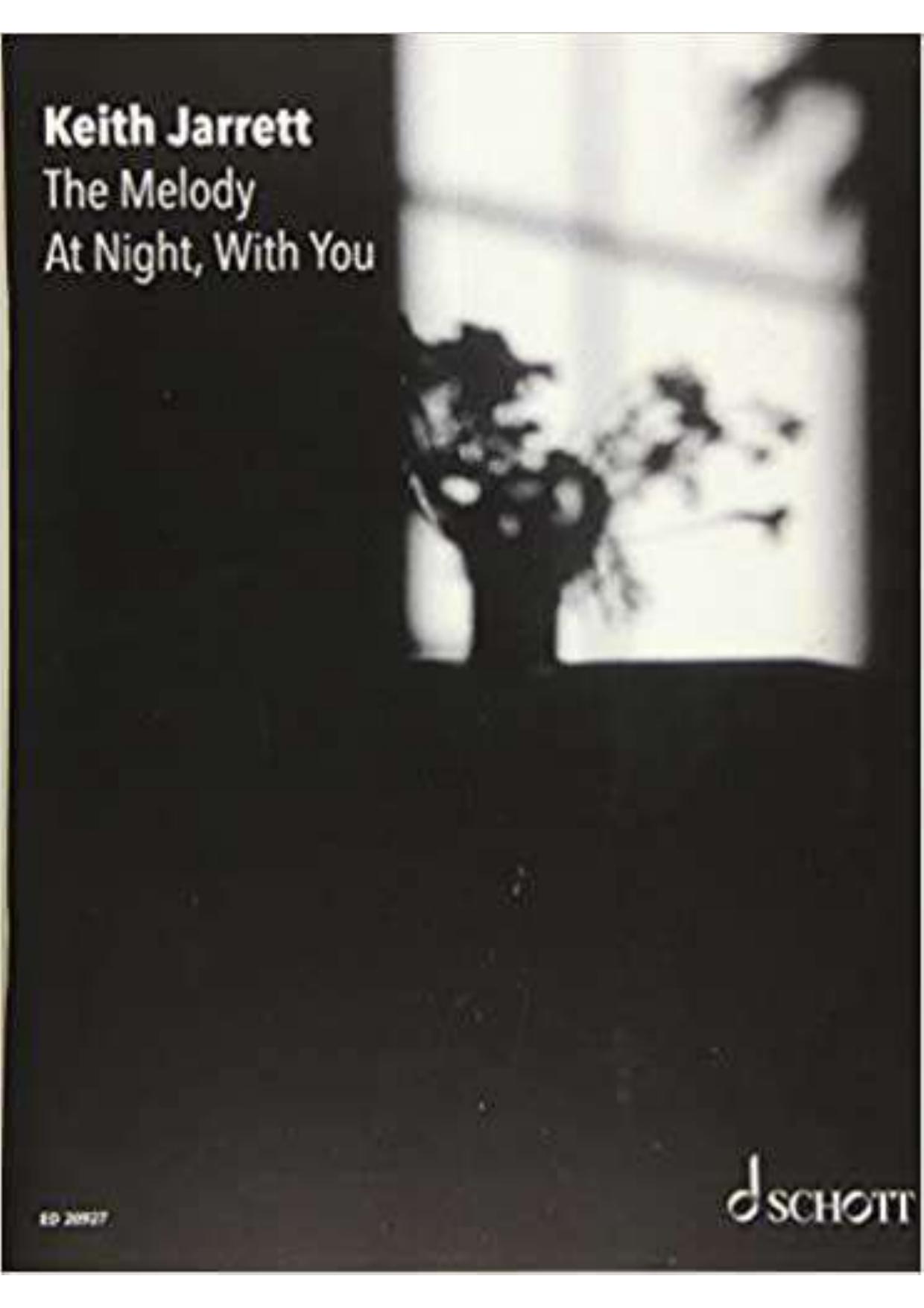
Rather than present a chronological examination of Jarrett’s life thus far, Dibb chooses, much like Jarrett’s own work, to use a seemingly non-linear approach that focuses on Jarrett’s improvisational process although, in the final analysis — just like Jarrett’s extemporization — there is an arc.
Beginning with the Standards Trio, then jumping back to his early days and ultimately ending with his European Quartet including saxophonist Jan Garbarek, bassist Palle Danielsson and drummer Jon Christensen, what becomes evident is that Jarrett’s goal has essentially been the same as when, precociously, he would add both his own original compositions and spontaneous creations to the classical repertoire of recitals dating back as early as when he was only eight years old.
Amongst the many interviews with past and present collaborators including Garbarek, Danielsson, Christensen, Charlie Haden, Gary Peacock, Jack DeJohnette, Chick Corea, Gary Burton and Dewey Redman, perhaps the most significant footage is that with ECM label owner and producer Manfred Eicher, with whom Jarrett found the perfect creative partner early in his career.
Keith Jarrett goes as far as saying that his albums are the product of two people — himself and Eicher — which is a significant distinction.
That Eicher has recorded far more Jarrett performances than have ever been or will ever be released in order to catch those moments of pure magic, those performances where Jarrett alone or with a group is truly at the moment, also demonstrates the high standard and level of discernment that both he and Jarrett apply to deciding what will ultimately be commercially distributed.
That Jarrett has, for 20 years, chosen only to document live performances, rather than record in the studio, is another distinction, one that points to a belief that the audience is, indeed, an integral part of each and every performance.
Jarrett comes across as deeply committed, albeit unquestionably idiosyncratic and unapologetically purist; while he admits to enjoying his time with Miles Davis — the only time in his career where he totally gave up acoustic piano for electric instruments — he also dismisses his electric work by calling such instruments “toys.
Few, if any, pianists other than Jarrett insist that a choice of pianos be provided for each performance, so that he can choose the best one for the concert hall. And the sheer physicality of his playing, along with his total and absolute involvement with the music to the exclusion of anything else, paints a unique picture — as does his level of communication.
Virtually all concert footage — including performances with Lloyd, Miles, the Standards Trio, and the American and European Quartets — demonstrates the incredible interaction that exists at every performance.
Jarrett has, in recent years, come under criticism with regard to the Standards Trio which, at over 20 years, is the longest-lasting group of his career — and, with rare exception, is one of the longest collaborations in the jazz period. Some say that the group has lost its creative edge.
But watching the footage of the trio, and listening to Jarrett, Peacock and DeJohnette discuss how little rehearsal takes place — in fact, rehearsals typically only occur in sound checks before concerts, and it’s not uncommon for the trio to work on something at a sound check and never actually play it in concert — one is truly drawn into the sense of adventure applied to every performance.
And the performance footage, in concert with the interview clips, manages to demonstrate the kinds of risks the trio take with each and every tune; how any one of the members can suggest a new direction with complete confidence that the others will follow.
By the time Dibb’s documentary reaches its end, one may not be able to explicitly define the art of improvisation, but there are profound conclusions implicitly reached. And the documentary compels one to either play some Jarrett recordings or, if Jarrett’s music is new to the viewer, to go out and find some.
The level of excitement and discovery is so vivid that even those who have become jaded with Jarrett in recent times may find themselves with renewed interest. While some bemoan Jarrett’s abandonment of writing, what becomes clear — and Jarrett articulates this at one point — is that every performance involves the act of composition. And that, perhaps more than anything, is the true meaning of improvisation.
